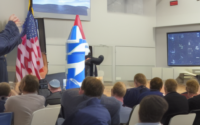How Virtual Reality Is Transforming Entertainment
How Virtual Reality Is Transforming Entertainment
Introduction to Virtual Reality (VR):
Virtual Reality (VR) is a rapidly evolving technology that has found its way into various industries, including entertainment. It refers to the use of computer technology to create a simulated environment that users can interact with as if they were physically present in that environment. VR typically involves the use of a head-mounted display that provides a 3D visual experience, along with other sensory feedback such as sound and touch.
Immersive Gaming Experiences:
One of the most significant ways in which VR is transforming entertainment is through immersive gaming experiences. VR technology allows gamers to step into the virtual world and interact with it in a way that was previously impossible with traditional gaming consoles. By putting on a VR headset, players can feel like they are inside the game, moving through environments and engaging with characters in ways that feel incredibly realistic.
Virtual Reality Movies and Experiences:
Beyond gaming, VR is also revolutionizing the way we experience movies and other forms of entertainment. Virtual reality movies allow viewers to become active participants in the story, with the ability to look around and explore the virtual world as the narrative unfolds around them. This immersive storytelling experience brings a whole new level of engagement and excitement to the entertainment industry.
Live Events and Virtual Concerts:
Another area where VR is making a significant impact is in live events and virtual concerts. With the ability to simulate real-world environments, VR technology allows audiences to attend concerts, sports events, and other live performances from the comfort of their own homes. This not only expands access to these events but also opens up new possibilities for interactive and personalized experiences for viewers.
Educational and Training Applications:
Virtual reality is also being increasingly used in educational and training applications. VR simulations can provide students and professionals with hands-on experience in various fields, such as medical training, flight simulation, and architectural design. By creating realistic environments that mimic real-world scenarios, VR technology offers a safe and effective way to practice and learn new skills.
Challenges and Future of Virtual Reality in Entertainment:
While VR technology holds great promise for transforming entertainment, it also faces challenges that need to be addressed. Issues such as motion sickness, high costs of VR hardware, and the need for compelling content are some of the obstacles that VR developers and content creators need to overcome. However, as technology advances and adoption rates increase, the future of virtual reality in entertainment looks promising, with new possibilities and innovations waiting to be explored.



